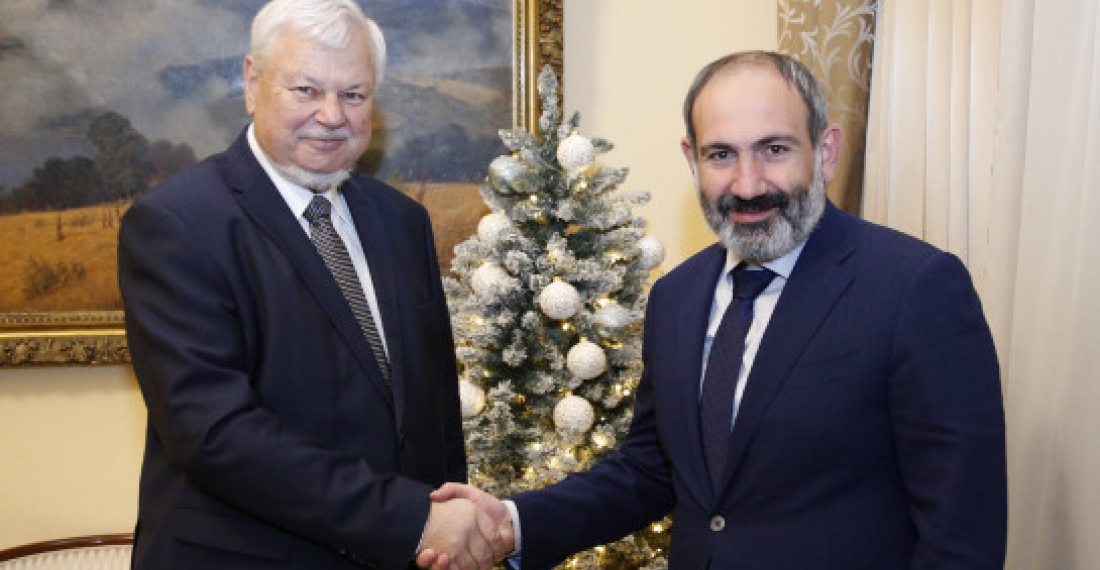Премьер-министр Армении Никол Пашинян в среду (19 декабря) сослался на продолжающиеся дипломатические контакты, связанные с нагорно-карабахским конфликтом. Пашинян заявил журналистам в Ереване, что дал указания, чтобы все контакты были открытыми, чтобы избежать интриг.
Пашинян привел в качестве примера визиты в регион спецпредставителя действующего председателя ОБСЕ Анджея Каспршика.
Он отметил, что региональные поездки Каспршика являются строго рутинными, и о них часто не сообщают и не освещают СМИ. Он сказал, что дал инструкции, что все контакты отныне должны освещаться.
Пашинян повторил в своих комментариях журналистам, что ни одно правительство Армении не было столь прозрачным в карабахском вопросе, как его администрация.
В среду, 18 декабря, на сайте правительства Армении появилась информация о встрече Пашиняна со спецпредставителем Каспршиком.
источник: commonspace.eu по материалам агентств
фото: Премьер-министр Армении Пашинян со специальным представителем действующего председателя ОБСЕ Анджей Каспршиком на встрече в Ереване, 18 декабря 2018 года.






